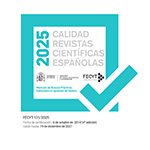Everyday existence under the communist regime: 'normality' and its collapse in the 1980s
Abstract
This study focuses on two "fraternal" countries, Romania and Poland, and addresses the category of "normality" in relation to everyday life under communist rule and therefore under a political regime whose rules are sometimes described as essentially "abnormal". It has been argued that everyday life best reveals the nature of totalitarianism, because totalitarianism attacked and deformed all spheres of life, imposing dependence on, and fear of, soulless rules to consolidate power. "Normality" can be equated with predictability and a sense of security in everyday life, and its opposite would be a situation of uncertainty and danger: on an individual level – illness or unemployment, on a collective level - war, a great economic crisis, an epidemic. But "normality" is perhaps above all a colloquial category of judgment and criticism; it often becomes a postulated or idealized image of proper life. "Normality" also implies the existence of a certain norm and at this level becomes an element of social distinction; what is "abnormal" for given groups, can be a tame life picture for others. This study concentrates on concepts such as” norm,” “normality” and “normalization” and the various meanings and understandings related to their use under communist rule by addressing the cases of Poland and Romania.
Downloads
Article download
License
In order to support the global exchange of knowledge, the journal Cuadernos de Historia Contemporánea is allowing unrestricted access to its content as from its publication in this electronic edition, and as such it is an open-access journal. The originals published in this journal are the property of the Complutense University of Madrid and any reproduction thereof in full or in part must cite the source. All content is distributed under a Creative Commons Attribution 4.0 use and distribution licence (CC BY 4.0). This circumstance must be expressly stated in these terms where necessary. You can view the summary and the complete legal text of the licence.











